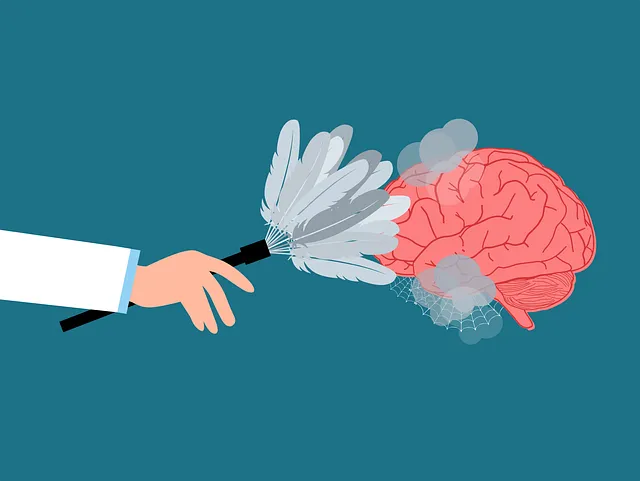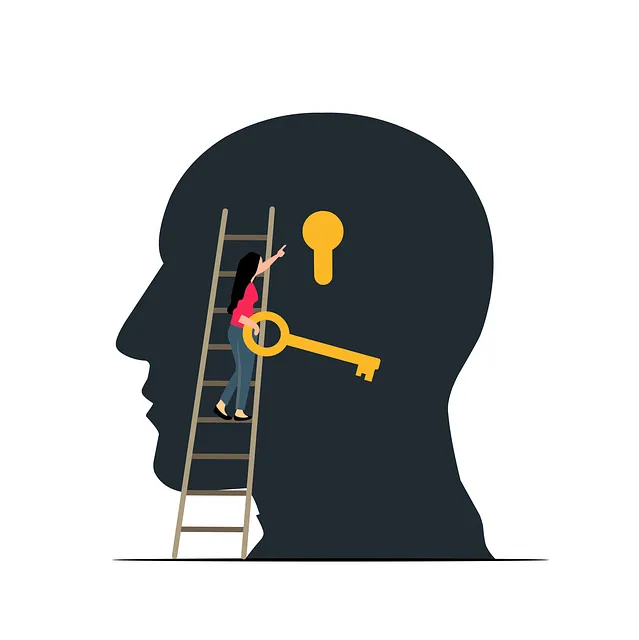The Kaiser Permanente behavioral health center in Longmont focuses on accurate mental health diagnoses through advanced tools, evidence-based practices, and continuous Cultural Competency Training. They integrate innovative techniques like Mindfulness Meditation and Emotional Regulation into provider education, fostering a culturally sensitive environment that prioritizes emotional well-being. This holistic approach ensures tailored treatment plans and improved outcomes for diverse patient needs, setting a high standard in mental health care under the Kaiser Permanente Longmont brand. The center leverages technology, advanced assessment tools, data analytics, and ongoing training to enhance diagnosis accuracy and patient care.
Mental illness diagnosis accuracy is a critical aspect of patient care, especially at facilities like the Kaiser Permanente Behavioral Health Center Longmont. This article delves into the complex landscape of mental health assessment, exploring challenges and innovative strategies to enhance diagnostic precision. We review the role of technology and advanced tools in mental health assessment, highlighting continuous improvement efforts through training, education, and community engagement. Understanding these approaches is key to ensuring accurate diagnoses at Kaiser Permanente Behavioral Health Center Longmont and beyond.
- Understanding Mental Health Diagnosis at Kaiser Permanente Behavioral Health Center Longmont
- Challenges in Accurate Diagnosis: A Comprehensive Review
- Innovative Strategies to Enhance Diagnostic Accuracy
- The Role of Technology and Advanced Tools in Mental Health Assessment
- Continuous Improvement: Training, Education, and Community Engagement
Understanding Mental Health Diagnosis at Kaiser Permanente Behavioral Health Center Longmont

At Kaiser Permanente Behavioral Health Center Longmont, understanding mental health diagnosis is a cornerstone of their comprehensive approach to patient care. The center leverages advanced assessment tools and evidence-based practices to ensure accurate diagnoses, tailored treatment plans, and improved outcomes for patients. By integrating innovative techniques such as Mindfulness Meditation and Emotional Regulation strategies into their healthcare provider training, Kaiser Permanente Longmont enhances cultural competency. This holistic approach not only equips healthcare providers with the skills to address diverse patient needs but also fosters a more inclusive and effective environment where emotional well-being is prioritized.
Through ongoing Cultural Competency Training, the center ensures that its staff remains updated on best practices for recognizing and addressing mental health conditions across various cultural backgrounds. This training emphasizes the importance of understanding cultural nuances, biases, and stereotyping in diagnosis, thereby promoting more precise and culturally sensitive care. By combining cutting-edge assessment methods with provider education focused on mindfulness and emotional regulation, Kaiser Permanente Behavioral Health Center Longmont sets a benchmark for excellence in mental health diagnosis and treatment.
Challenges in Accurate Diagnosis: A Comprehensive Review

Diagnosing mental illness accurately is a complex task, often hindered by several factors. One significant challenge lies in the subjective nature of many symptoms, which can vary greatly from person to person and across different contexts. For instance, what seems like extreme anxiety to one individual might be perceived differently by another, making it difficult for healthcare providers at Kaiser Permanente behavioral health center Longmont to pinpoint specific disorders. This complexity demands a thorough understanding of not just the patient’s symptoms but also their personal history, social environment, and unique emotional experiences.
Furthermore, the vast array of mental health conditions, each with its own set of criteria, can lead to misdiagnosis or undiagnosed cases. Effective diagnosis requires professionals to master the nuances of various disorders, stay updated on recent research and changes in mental health policy analysis and advocacy, and employ tailored communication strategies. Integrating these skills is essential for accurately identifying emotional regulation difficulties associated with conditions like depression, anxiety disorders, or even more complex mental health challenges.
Innovative Strategies to Enhance Diagnostic Accuracy

The Kaiser Permanente behavioral health center in Longmont has been at the forefront of pioneering innovative strategies to enhance mental illness diagnosis accuracy. By integrating advanced assessment tools and evidence-based practices, the center aims to reduce misdiagnoses and provide more personalized care. Their approach includes utilizing data analytics to identify patterns and trends among patients, allowing for more precise evaluations. Additionally, they’ve implemented Conflict Resolution Techniques and Crisis Intervention Guidance, ensuring healthcare professionals are adept at handling complex situations and offering effective support during critical moments.
The center also places a strong emphasis on teaching Stress Management strategies as part of the diagnostic process. By empowering individuals with tools to cope with stress and emotional challenges, the team can gain a clearer understanding of their mental health status. This holistic approach not only improves diagnosis accuracy but also fosters better patient engagement and outcomes, setting a new standard in behavioral healthcare services.
The Role of Technology and Advanced Tools in Mental Health Assessment

The integration of technology and advanced tools has revolutionized mental health assessment, aiming to enhance accuracy and accessibility at centers like the Kaiser Permanente behavioral health center in Longmont. Digital platforms offer a wide array of innovative solutions. For instance, online screening tools can efficiently identify symptoms, providing initial assessments that guide patients towards appropriate care. These tools often employ machine learning algorithms to analyze responses, ensuring more precise diagnoses compared to traditional methods.
Moreover, technology facilitates remote consultations and therapy sessions through video conferencing, making essential services accessible to a broader population. This digital shift is particularly beneficial for organizations like the Stress Management Workshops Organization, which can now offer trauma support services to individuals in remote areas or those with limited mobility. By leveraging technology, Mental Health Policy Analysis and Advocacy groups can also gather comprehensive data, enabling more effective policy formation and resource allocation.
Continuous Improvement: Training, Education, and Community Engagement

At the Kaiser Permanente behavioral health center in Longmont, continuous improvement is a cornerstone of their commitment to enhancing mental illness diagnosis accuracy and patient care. They invest heavily in ongoing training for healthcare professionals, focusing on the latest research and best practices. This includes workshops and seminars that address emerging trends in mental health assessment and treatment, ensuring staff are equipped with the most up-to-date knowledge.
Community engagement is another key strategy. The center actively collaborates with local organizations to promote Mental Illness Stigma Reduction Efforts and encourage Self-Care Routine Development for Better Mental Health. They also provide resources and guidance on Mental Wellness Journaling Exercises, empowering individuals to take an active role in their mental wellness journeys. These holistic improvement efforts not only enhance diagnosis accuracy but also foster a supportive environment that promotes recovery and well-being.
The journey towards enhancing mental illness diagnosis accuracy at the Kaiser Permanente Behavioral Health Center Longmont is an ongoing process. By addressing challenges through comprehensive reviews, implementing innovative strategies, leveraging technology, and fostering continuous improvement through training and community engagement, the center aims to provide more precise and timely diagnoses. These efforts not only benefit individuals receiving care but also contribute to the overall advancement of mental health assessment practices within the industry, ensuring better outcomes for folks seeking support at Kaiser Permanente Behavioral Health Center Longmont and similar institutions worldwide.






